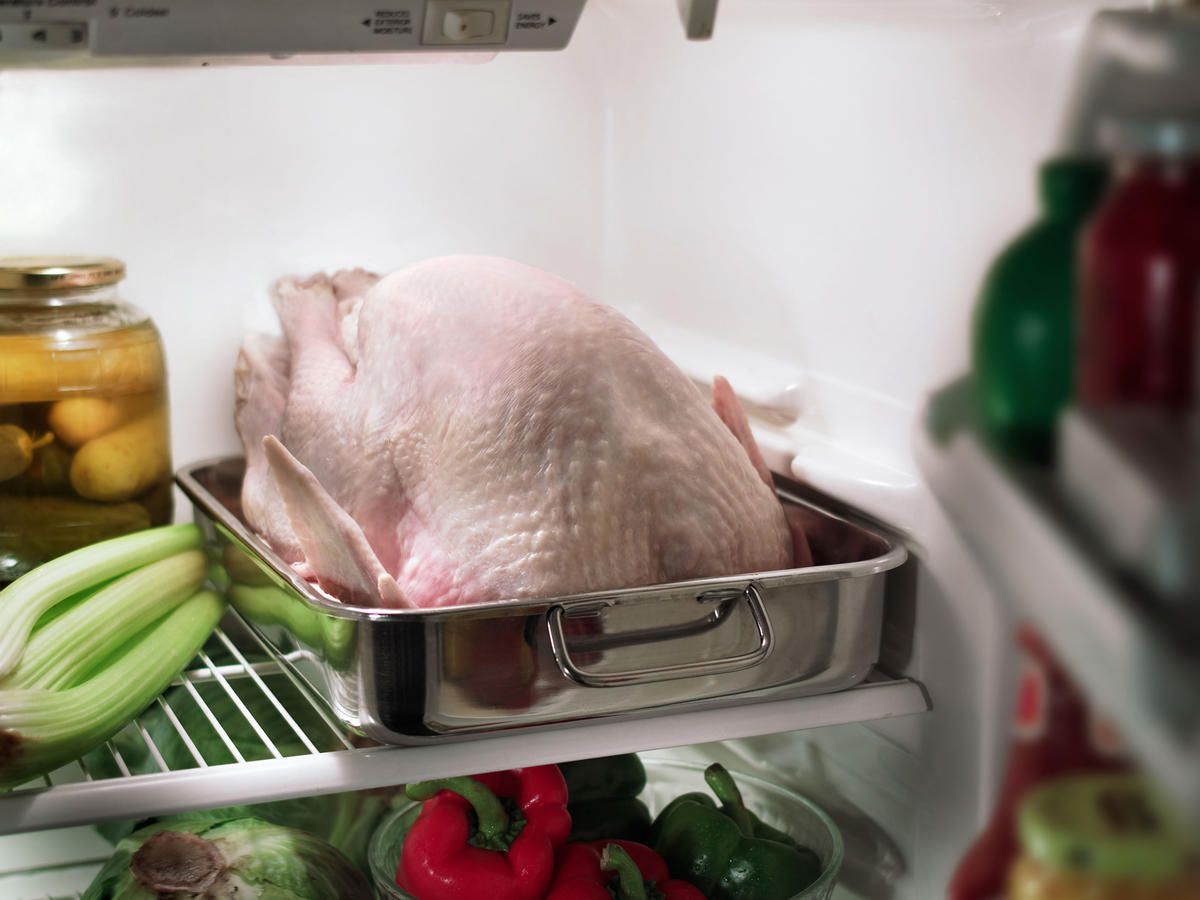

Articles
How To Store Turkey In Fridge
Modified: January 18, 2024
Learn how to store turkey in the fridge and keep it fresh for longer. Read our informative articles on proper turkey storage techniques.
(Many of the links in this article redirect to a specific reviewed product. Your purchase of these products through affiliate links helps to generate commission for Storables.com, at no extra cost. Learn more)
Introduction
When it comes to storing turkey in the fridge, proper techniques are essential to maintain its freshness and prevent any potential foodborne illnesses. The fridge provides a controlled environment that helps to keep the turkey at a safe temperature, minimizing bacterial growth and ensuring it stays delicious and safe to consume.
Storing turkey properly is not only important for food safety reasons but also for preserving its taste and texture. By following the correct guidelines, you can ensure that your turkey remains flavorful and juicy when it’s time to serve it.
In this article, we will provide you with comprehensive instructions on how to store turkey in the fridge, including general guidelines, step-by-step instructions, tips for keeping it fresh, packaging and wrapping techniques, and how long you can safely store the turkey in the fridge. We will also discuss signs of spoilage that you should be aware of to determine if the turkey is still good to use.
With the right knowledge and techniques, you can confidently store your turkey in the fridge and enjoy a delicious meal with peace of mind. Let’s dive in and learn how to properly store turkey to keep it fresh and safe.
Key Takeaways:
- Properly storing turkey in the fridge is crucial for food safety, prolonged freshness, and preventing cross-contamination. Follow guidelines, package securely, and monitor for spoilage to enjoy a safe and delicious meal.
- Remember to adhere to recommended storage times, watch for signs of spoilage, and prioritize food safety when storing turkey in the fridge. With proper care, enjoy fresh and flavorful turkey dishes with peace of mind.
Read more: How To Store Turkey
Why it is important to store turkey properly
Properly storing turkey is crucial for several reasons. Here are the main reasons why it is important to store turkey properly:
- Food safety: Storing turkey at the correct temperature is key to preventing the growth of harmful bacteria, such as Salmonella or Campylobacter. These bacteria can multiply rapidly at room temperature, leading to foodborne illnesses. By storing turkey in the fridge, you create an environment that inhibits bacterial growth and keeps the meat safe to consume.
- Prolonged freshness: Storing turkey in the fridge helps to maintain its taste, texture, and overall quality. Cold temperatures slow down the spoilage process, allowing you to enjoy the turkey for a longer period. Proper storage ensures that the meat stays moist and doesn’t dry out, retaining its delicious flavor until you’re ready to cook or serve it.
- Preventing cross-contamination: Storing turkey properly also helps to prevent cross-contamination. Raw turkey can contain bacteria, and if it comes into contact with other foods in the fridge, it can contaminate them as well. By storing turkey in a separate container or wrapping it securely, you reduce the risk of bacteria spreading to other foods in your fridge.
To ensure the safety and quality of your turkey, it’s essential to follow proper storage guidelines. By doing so, you can protect yourself and your loved ones from foodborne illnesses and enjoy a delicious, fresh turkey when it’s time to cook or serve it.
General guidelines for storing turkey in the fridge
When it comes to storing turkey in the fridge, there are some general guidelines to follow. These guidelines will help you maintain the turkey’s freshness and prevent any potential food safety issues. Here are the general guidelines:
- Temperature: The fridge should be set to a temperature of 40°F (4°C) or below. This temperature range helps inhibit bacterial growth and keeps the turkey safe to consume.
- Storage container: Place the raw turkey in a shallow container or on a tray to catch any juices that might leak. This prevents cross-contamination with other foods in the fridge and makes it easier to clean up any spills.
- Location: Store the turkey on the bottom shelf of the fridge to prevent any drips from contaminating other foods. Keeping it away from ready-to-eat foods, such as fruits and vegetables, is also important to prevent cross-contamination.
- Don’t overcrowd: Avoid overcrowding the fridge as it can prevent proper air circulation, leading to uneven cooling. Give the turkey enough space for air to circulate around it and maintain a consistently cold temperature.
- Keep it covered: Cover the turkey securely with plastic wrap, aluminum foil, or place it in a sealed plastic bag to prevent exposure to air and cross-contamination with other foods.
- Labeling: Label the storage container or package with the date of storage. This will help you keep track of how long the turkey has been stored and ensure that you use it within the recommended time frame.
- Avoid door storage: The temperature in the door of the fridge tends to fluctuate more than on the shelves. Therefore, it’s best to avoid storing the turkey in the door to maintain a consistent temperature.
Following these general guidelines will help ensure that your turkey stays fresh, safe, and flavorful during its time in the fridge. Now that we’ve covered the general guidelines, let’s move on to the step-by-step instructions for storing turkey in the fridge.
Step-by-step instructions for storing turkey in the fridge
Storing turkey in the fridge requires proper preparation and care. Follow these step-by-step instructions to ensure that your turkey stays fresh and safe:
- Clean and dry: Before storing the turkey in the fridge, make sure it is cleaned and dried thoroughly. Remove any giblets or organs that may be inside the turkey.
- Wrap or container: Place the turkey in a shallow container or wrap it securely with plastic wrap, aluminum foil, or place it in a sealed plastic bag. This helps to prevent any juices from dripping onto other foods and keeps the turkey protected.
- Find the right spot: Choose a suitable location in the fridge to store the turkey. The bottom shelf is the best place to prevent any cross-contamination and ensure a consistent temperature.
- Temperature check: Ensure that your fridge is set to a temperature of 40°F (4°C) or below. Use a refrigerator thermometer to double-check the temperature and make adjustments if necessary.
- Proper positioning: Place the wrapped or containerized turkey in the designated spot on the bottom shelf of the fridge. Make sure it is not touching any other foods and has enough space for air circulation.
- Avoid frequent opening: Minimize opening the fridge unnecessarily to maintain a consistent temperature. This will help prevent fluctuations that can affect the freshness of the turkey.
- Regular checks: Keep an eye on the turkey throughout its storage period. Check for any signs of spoilage such as unusual odors, discoloration, or sliminess.
- Label and date: Label the storage container or package with the current date of storage. This will help you keep track of how long the turkey has been stored and ensure that you use it within the recommended time frame.
By following these step-by-step instructions, you can safely store your turkey in the fridge and maintain its freshness until you’re ready to cook it. Next, we will explore some helpful tips to keep your turkey fresh during its time in the fridge.
Tips for keeping turkey fresh in the fridge
To keep your turkey fresh and maintain its quality while stored in the fridge, consider implementing the following tips:
- Keep the fridge clean: Regularly clean and sanitize your fridge to prevent the buildup of bacteria and odors that can transfer to the turkey.
- Use an airtight container: If possible, store the turkey in an airtight container to minimize exposure to air, which can cause the meat to dry out.
- Don’t freeze, unless necessary: While the fridge is suitable for temporary storage, freezing the turkey is a better long-term option. Freezing suspends bacterial growth and can extend the lifespan of the turkey.
- Consider brining: Brining the turkey before storing it in the fridge can help enhance its flavor and maintain moisture. Just make sure to rinse off excess salt before storage.
- Rotate the turkey: If you’re storing multiple items in your fridge, remember to rotate the turkey occasionally to ensure even cooling and avoid any potential hot spots.
- Avoid seasoning in advance: It’s best to avoid seasoning the turkey before storing it in the fridge. Seasoning too early can cause the meat to become mushy and lose its texture.
- Use a drip tray: Placing a drip tray or aluminum foil underneath the turkey can catch any juices that might leak out, making cleanup easier and preventing cross-contamination.
- Avoid storing for too long: While the fridge can help keep the turkey fresh for a few days, it’s best to use it within 3 to 4 days to maintain optimal quality and safety.
- Keep an eye on the temperature: Regularly check the temperature of your fridge to ensure it remains below 40°F (4°C) to inhibit bacterial growth and keep the turkey safe.
By following these tips, you can ensure that your turkey remains fresh, flavorful, and safe to consume during its storage in the fridge. In the next section, we will discuss how to package and wrap the turkey for optimal storage.
Place the turkey in a shallow airtight container or wrap it tightly in plastic wrap or aluminum foil before storing it in the fridge. This will help prevent cross-contamination and keep the turkey fresh.
Read more: How To Store Fresh Turkey
How to package and wrap turkey for fridge storage
Proper packaging and wrapping of the turkey are vital to maintaining its freshness and preventing cross-contamination with other foods in the fridge. Follow these steps to package and wrap your turkey for optimal fridge storage:
- Clean and dry the turkey: Ensure that the turkey is cleaned and patted dry with paper towels. This helps remove any excess moisture and prevents the growth of bacteria.
- Choose the right wrapping materials: Use plastic wrap, aluminum foil, or large sealed plastic bags to wrap the turkey securely. Make sure the materials are food-safe and designed for storage purposes.
- Wrap the turkey tightly: Place the turkey on a large piece of plastic wrap or aluminum foil. Fold the wrap or foil tightly around the turkey, making sure there are no exposed areas. Alternatively, place the turkey in a sealed plastic bag, squeezing out as much air as possible before sealing.
- Double-wrap for added protection: To ensure maximum freshness and prevent any potential leaks, consider double-wrapping the turkey. Use a second layer of plastic wrap or aluminum foil to provide an extra barrier against air and moisture.
- Label the package: Clearly label the package with the current date and any additional information, such as the weight of the turkey. This will help you keep track of the storage duration and make it easier to identify the turkey when needed.
- Place in a storage container: If possible, transfer the wrapped turkey to a shallow container to catch any juices that might leak. This helps prevent cross-contamination with other foods and makes it easier to clean up any spills.
- Store on the bottom shelf: Position the wrapped turkey on the bottom shelf of the fridge, away from any ready-to-eat foods. This prevents any potential drips from contaminating other items and helps maintain a consistent temperature.
By following these steps, you can securely package and wrap your turkey for fridge storage, ensuring that it remains fresh, protected, and separate from other foods. Now that you know how to properly package and wrap the turkey, let’s explore how long you can safely store it in the fridge.
How long can you store turkey in the fridge?
The storage duration for turkey in the fridge depends on several factors, such as its freshness when purchased and how it has been handled and stored. In general, a whole turkey can be safely stored in the fridge for 1 to 2 days before cooking. Here’s a breakdown of the recommended storage times:
- Fresh, uncooked whole turkey: A fresh, uncooked whole turkey can be stored in the fridge for up to 2 days.
- Cooked turkey: If the turkey has been cooked, it can be stored in the fridge for 3 to 4 days. Make sure to properly store it in an airtight container to maintain its quality.
- Turkey leftovers: Leftover turkey can be stored in the fridge for 3 to 4 days after the initial cooking. Ensure that it is promptly refrigerated and stored in an airtight container.
It’s important to note that these are general guidelines and it’s always recommended to use your best judgment when determining the freshness and safety of the turkey. If you notice any signs of spoilage, such as a foul odor, sliminess, or unusual discoloration, discard the turkey immediately.
If you have a large amount of leftover turkey or wish to store it for a longer period, it’s advisable to freeze it. Properly wrapped and stored in the freezer, cooked turkey can remain safe to eat for up to 3 to 4 months.
Remember, when in doubt, it’s always better to err on the side of caution and discard the turkey if you have doubts about its freshness or safety. Now that you’re aware of the recommended storage times, let’s discuss the signs of spoilage to watch out for.
Signs of spoilage to watch out for
When storing turkey in the fridge, it’s important to be aware of the signs of spoilage. Monitoring the turkey for any indications of spoilage is crucial to ensure that it is safe to consume. Here are the signs of spoilage to watch out for:
- Unpleasant odor: If the turkey emits a foul or unusual odor, it is a strong indication that it has spoiled. Trust your sense of smell and discard the turkey if it has a strong, off-putting smell.
- Slime or film: A slimy or sticky film on the surface of the turkey is a sign of bacterial growth. If you notice any sliminess or a sticky texture, it is best to discard the turkey.
- Unusual discoloration: If the turkey appears discolored or has patches of green, gray, or black, it may indicate mold or bacterial growth. Discoloration is a clear sign of spoilage, and the turkey should not be consumed.
- Texture changes: A notable change in the texture of the turkey, such as extreme dryness or a mushy consistency, can indicate spoilage. Fresh turkey should have a firm and moist texture, so any drastic changes are cause for concern.
- Expired storage time: If the turkey has been stored in the fridge for longer than the recommended storage time, it is advisable to err on the side of caution and discard it. Always check the storage duration and adhere to safe guidelines.
It is crucial to prioritize food safety when it comes to storing and consuming turkey. If you notice any of these signs of spoilage, discard the turkey immediately. Consumption of spoiled or contaminated food can lead to foodborne illnesses.
By staying vigilant and paying attention to these signs, you can ensure that the turkey you consume is fresh, safe, and of high quality. Now that we have discussed the signs of spoilage, let’s wrap up this article.
Conclusion
Properly storing turkey in the fridge is essential for maintaining its freshness, taste, and safety. By following the guidelines and tips provided in this article, you can ensure that your turkey remains in optimal condition until you are ready to cook or serve it.
Remember to adhere to general guidelines, including storing the turkey at the appropriate temperature, using a suitable storage container, and keeping it away from other foods to prevent cross-contamination. Additionally, package and wrap the turkey securely to maintain its moisture and protect it from exposure to air and harmful bacteria.
It’s important to be aware of the recommended storage durations for both raw and cooked turkey, and to monitor the turkey for any signs of spoilage, such as unpleasant odors, slime, unusual discoloration, or texture changes. If in doubt, it is always better to discard the turkey.
By prioritizing food safety and following the guidelines outlined in this article, you can store turkey in the fridge with confidence, knowing that it will remain fresh, flavorful, and safe to consume. So, enjoy your turkey dishes and have a pleasant and delicious meal!
Frequently Asked Questions about How To Store Turkey In Fridge
Was this page helpful?
At Storables.com, we guarantee accurate and reliable information. Our content, validated by Expert Board Contributors, is crafted following stringent Editorial Policies. We're committed to providing you with well-researched, expert-backed insights for all your informational needs.
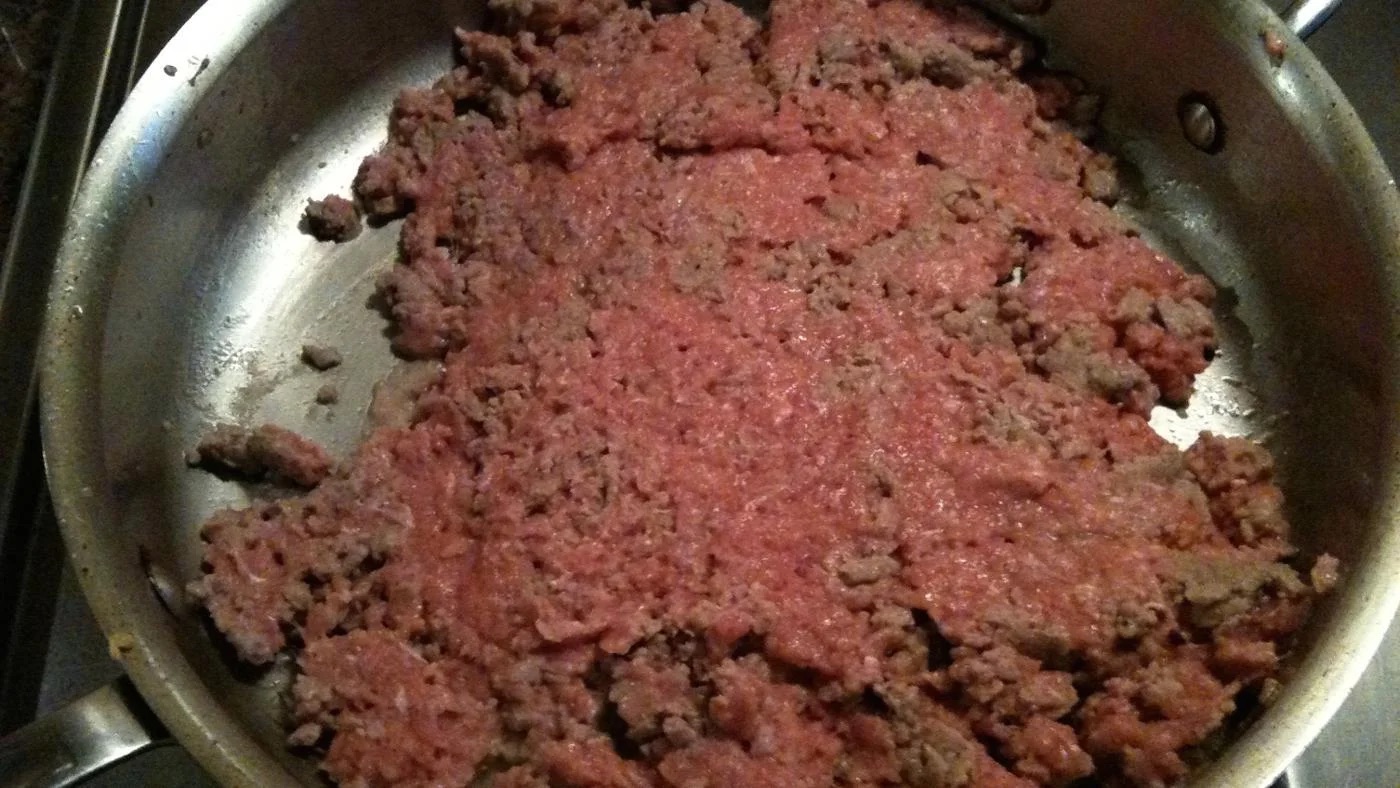
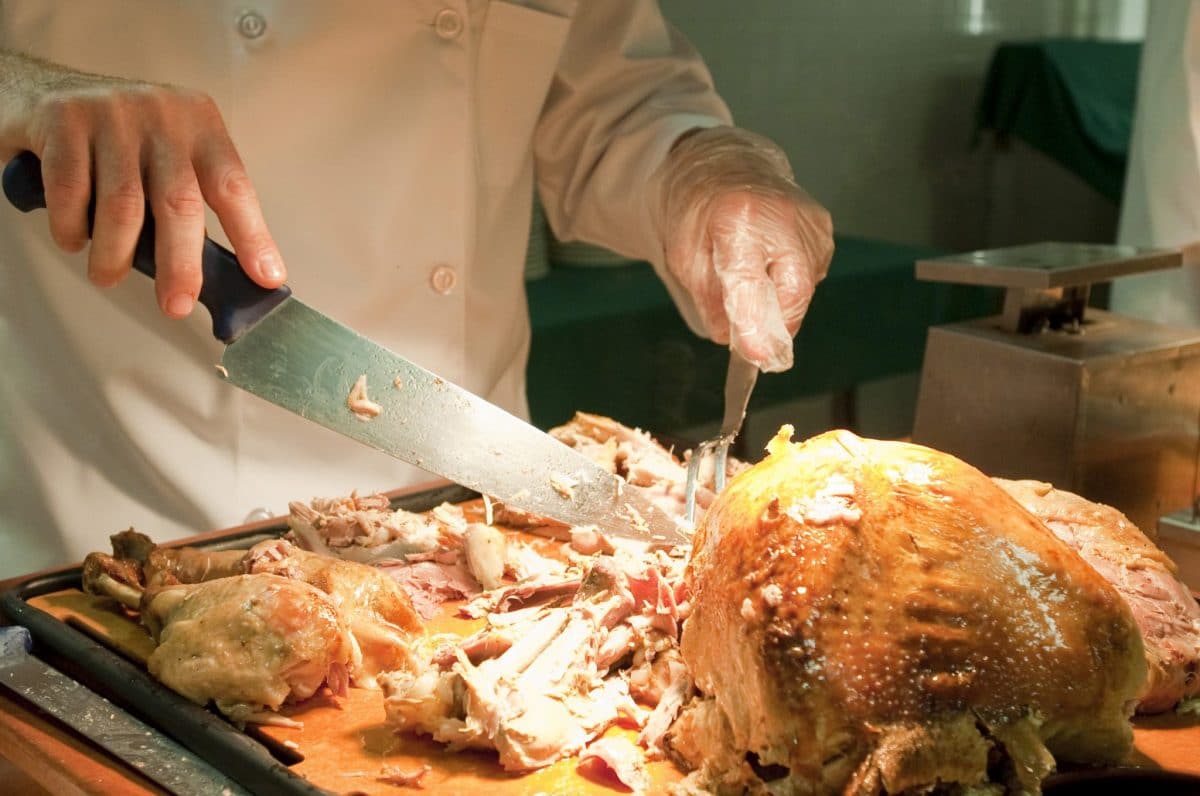




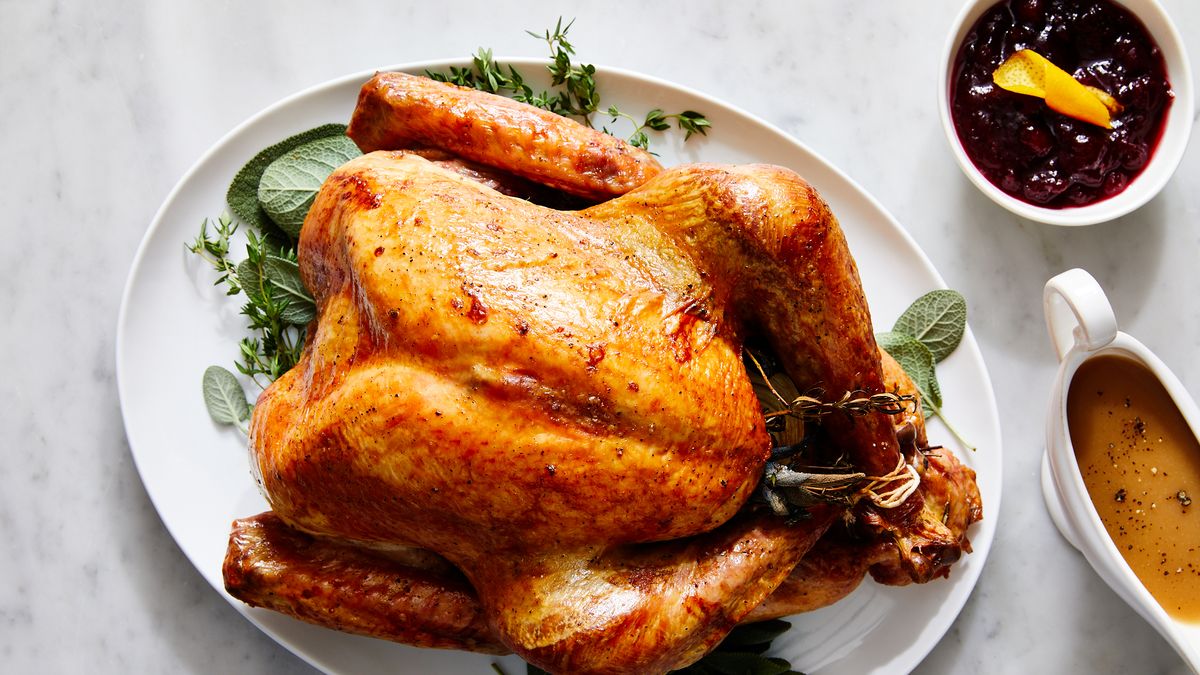





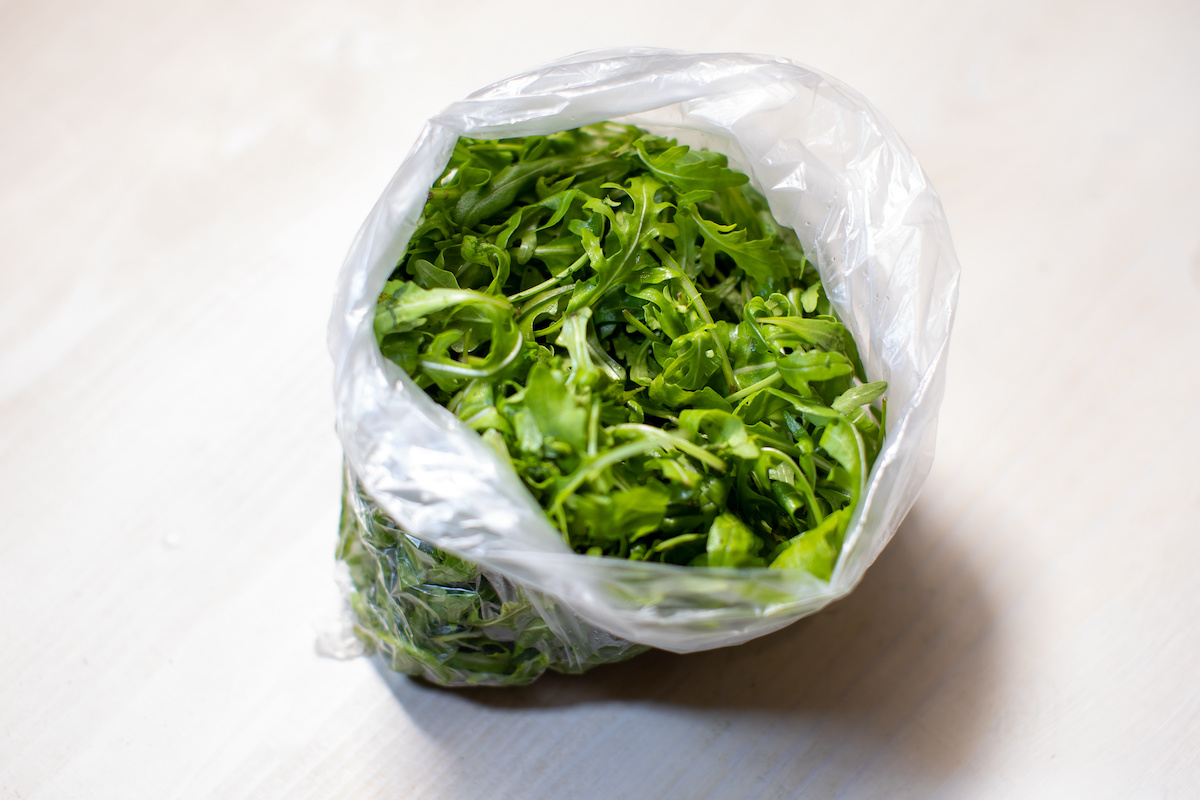


0 thoughts on “How To Store Turkey In Fridge”